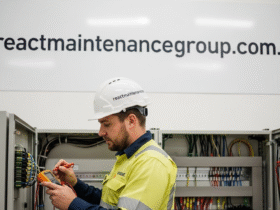In the rapidly evolving world of automotive technology, the role of an auto electrician has become increasingly vital. As vehicles integrate more advanced electrical and electronic systems, the demand for skilled auto electricians has surged. This blog explores the scope and job profile of an auto electrician, detailing their responsibilities, the skills required, and the evolving nature of their role in the automotive industry.
What is an Auto Electrician?
An auto electrician specializes in the electrical systems of vehicles. Unlike general automotive technicians who may address a broad range of mechanical and electrical issues, auto electricians focus specifically on diagnosing, repairing, and maintaining the electrical components and systems within vehicles. This includes everything from the battery and alternator to intricate onboard electronics.
Scope of an Auto Electrician’s Role
The scope of an auto electrician’s role is broad and encompasses various tasks and responsibilities that ensure a vehicle’s electrical systems function efficiently and reliably. Here’s a closer look at the key areas of their work:
1. Diagnosis of Electrical Problems
Auto electricians are experts in diagnosing electrical faults. This involves:
- Using Diagnostic Tools: Employing specialized tools and equipment, such as multimeters and oscilloscopes, to identify issues with electrical circuits and components.
- Interpreting Error Codes: Utilizing onboard diagnostic (OBD) systems to read error codes and pinpoint the source of electrical problems.
- Testing Electrical Systems: Conducting tests on various systems, including the ignition system, lighting, and battery, to determine functionality and identify faults.
2. Repair and Replacement of Electrical Components
Once a problem is identified, auto electricians are responsible for:
- Component Replacement: Replacing faulty components, such as batteries, alternators, and starter motors.
- Repairing Wiring: Repairing or replacing damaged wiring and connectors that can lead to electrical failures or malfunctions.
- Fixing Electrical Accessories: Addressing issues with electrical accessories like power windows, heated seats, and infotainment systems.
3. Installation of Electrical Systems and Accessories
Auto electricians also install and upgrade various electrical systems and accessories, including:
- Aftermarket Accessories: Installing additional features such as upgraded sound systems, GPS navigation units, and advanced lighting.
- Vehicle Upgrades: Implementing electrical upgrades to enhance vehicle performance or aesthetics, such as LED lighting conversions or advanced alarm systems.
4. Routine Maintenance and Inspections
Routine maintenance is crucial for preventing electrical issues and ensuring the longevity of a vehicle’s electrical systems. Auto electricians perform:
- Battery Checks: Testing and maintaining battery performance to prevent starting issues and electrical failures.
- Wiring Inspections: Regularly inspecting wiring and connections for signs of wear, corrosion, or damage.
- Component Testing: Ensuring that all electrical components are functioning correctly and replacing worn-out parts as necessary.
5. Troubleshooting Complex Electrical Systems
Modern vehicles feature complex electrical and electronic systems that require advanced troubleshooting skills. Auto electricians deal with:
- Advanced Driver-Assistance Systems (ADAS): Diagnosing and repairing systems such as adaptive cruise control, lane-keeping assist, and collision avoidance.
- High-Voltage Systems: Working with high-voltage electrical systems in hybrid and electric vehicles, including battery packs and electric drivetrains.
- Software Issues: Updating or reprogramming software in electronic control units (ECUs) to resolve issues or enhance vehicle performance.
Skills and Qualifications of an Auto Electrician
To effectively perform their role, auto electricians need a diverse set of skills and qualifications:
1. Technical Knowledge
- Electrical Theory: Understanding of electrical principles, circuits, and component functions.
- Automotive Systems: Knowledge of automotive electrical systems, including ignition, lighting, and charging systems.
2. Diagnostic Skills
- Tool Proficiency: Ability to use diagnostic tools and equipment to troubleshoot and resolve electrical issues.
- Problem-Solving: Strong problem-solving skills to identify and rectify complex electrical faults.
3. Attention to Detail
- Precision: Attention to detail is crucial in diagnosing and repairing electrical systems to ensure accuracy and reliability.
- Thoroughness: Comprehensive inspection and testing to prevent overlooked issues.
4. Communication Skills
- Customer Interaction: Ability to explain technical issues and solutions to customers in a clear and understandable manner.
- Team Collaboration: Working effectively with other automotive technicians and service staff.
5. Adaptability and Continuous Learning
- Technological Advancements: Staying updated with the latest advancements in automotive technology and electrical systems.
- Ongoing Training: Participating in continuous education and training programs to maintain and enhance skills.
Educational Pathways and Training
Becoming an auto electrician typically involves a combination of formal education and hands-on training:
- Vocational Training: Enrolling in a vocational school or technical college that offers specialized programs in automotive technology and electrical systems.
- Apprenticeships: Gaining practical experience through apprenticeships or on-the-job training under the supervision of experienced auto electricians.
- Certifications: Obtaining industry-recognized certifications, such as those offered by the National Institute for Automotive Service Excellence (ASE), to validate skills and expertise.
The Evolving Role of Auto Electricians
As automotive technology continues to advance, the role of auto electricians is evolving:
1. Electric and Hybrid Vehicles
The rise of electric and hybrid vehicles presents new challenges and opportunities. Auto electricians need to acquire specialized knowledge in high-voltage systems, battery technology, and electric drivetrains.
2. Advanced Technologies
The integration of advanced technologies, such as autonomous driving systems and connected vehicles, requires auto electricians to stay abreast of the latest innovations and diagnostic techniques.
3. Increased Complexity
Modern vehicles are equipped with increasingly complex electrical systems and software. Auto electricians must adapt to these changes, acquiring new skills and tools to diagnose and repair sophisticated systems.
Conclusion
Auto electricians are indispensable professionals who play a crucial role in maintaining and repairing the electrical systems of modern vehicles. Their responsibilities range from diagnosing and repairing electrical faults to installing new systems and accessories. With the automotive industry’s shift towards more advanced technologies, the scope of an auto electrician’s role continues to expand. By possessing a diverse set of skills, staying updated with technological advancements, and undergoing continuous training, auto electricians ensure that vehicles operate efficiently, safely, and reliably. Their expertise not only keeps vehicles on the road but also drives innovation in automotive technology.











Find Us on Socials